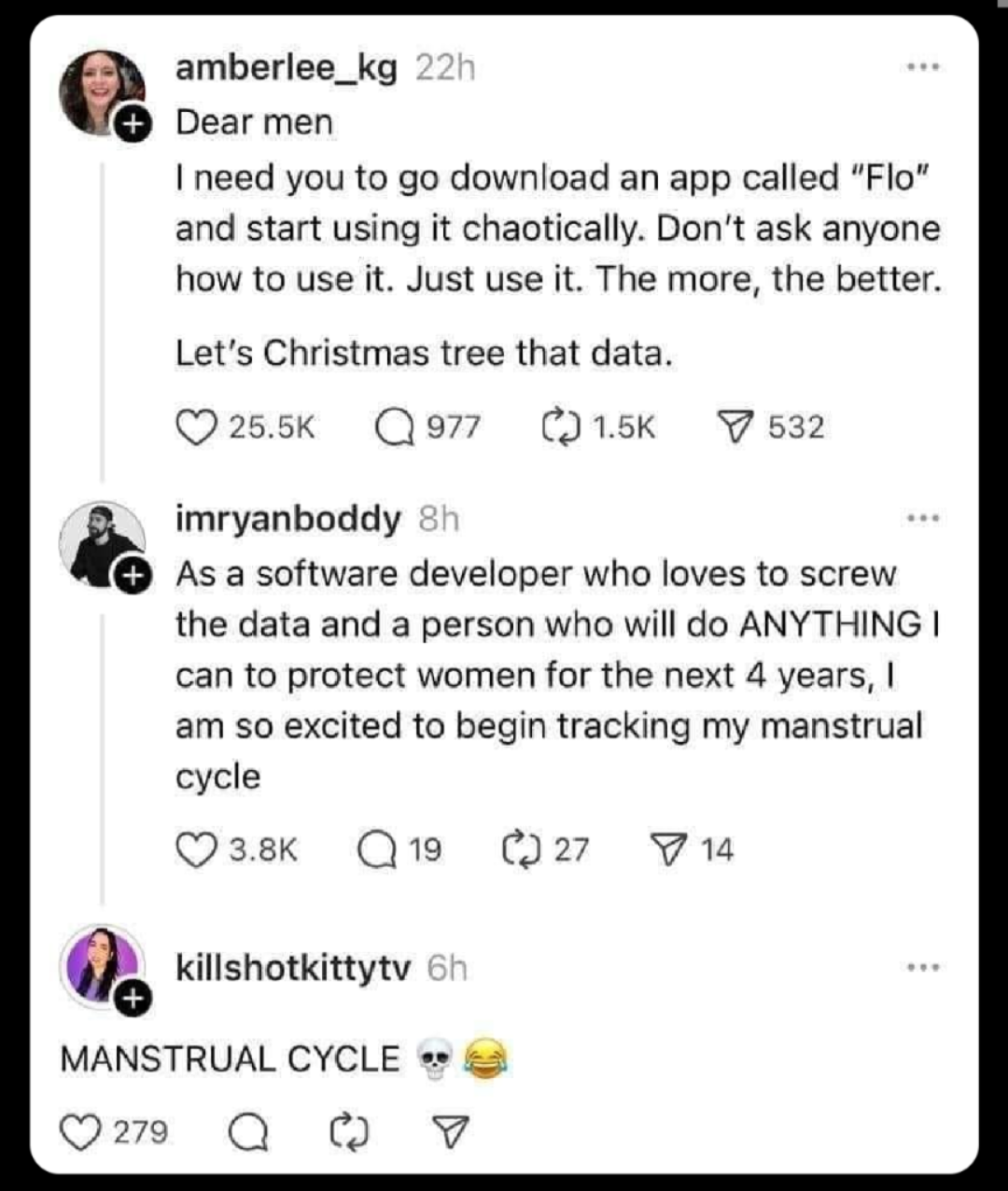this post was submitted on 13 Nov 2024
1198 points (98.6% liked)
Microblog Memes
9296 readers
1964 users here now
A place to share screenshots of Microblog posts, whether from Mastodon, tumblr, ~~Twitter~~ X, KBin, Threads or elsewhere.
Created as an evolution of White People Twitter and other tweet-capture subreddits.
Rules:
- Please put at least one word relevant to the post in the post title.
- Be nice.
- No advertising, brand promotion or guerilla marketing.
- Posters are encouraged to link to the toot or tweet etc in the description of posts.
Related communities:
founded 2 years ago
MODERATORS
you are viewing a single comment's thread
view the rest of the comments
view the rest of the comments

Thank you again for your nuanced response. I get that tracking health data can be useful, but I think the real value comes from sharing that data with a doctor who can make sense of it – not from relying on an app, at least not yet.
I am aware of how stressful and confusing things can get when managing something like periods. Multiple members of my family have faced these struggles, and while the healthcare system in our country is disorganised and far from perfect, we have always found that a good doctor’s expertise – though hard to come by – is irreplaceable.
As I mentioned earlier, I do see the value in tracking symptoms and vitals, but that value is unlocked when that data is used to inform a professional’s advice – not handed over to companies that profit from it, or worse, enable a greater malice.
In the end, it seems we are at an impasse between our opinions, but I believe the stakes are too high to rely on apps when lower-risk options – like consulting with doctors – have helped people navigate these struggles for generations. Again, I understand why apps can be appealing, but I think it’s important to consider what might be lost in the long term, especially when it comes to something as personal and vital as our health.
Perhaps, the energy should be put toward making good healthcare more accessible – which, I believe, is what these apps promised.
Not much to add here, as seemingly we agree on almost all real issues. Just wanted to acknowledge your response and wish you and yours well in all things.
Yes, despite our long exchanges we do agree on the core issues. I appreciate your acknowledgement. Wishing you and yours well too.